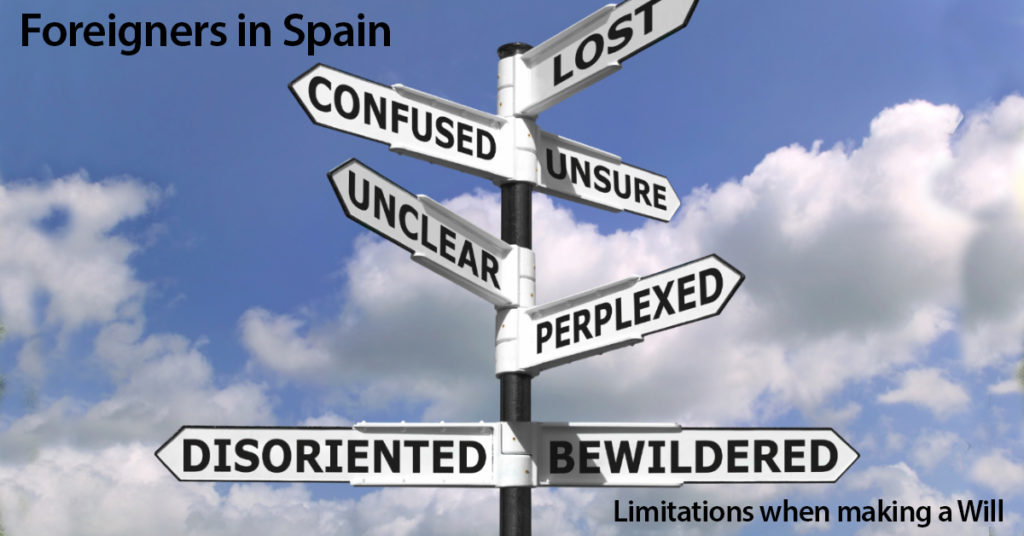SINCE European Regulation 650/2012 applies in Spain, foreigners with assets and rights in the Spanish territory, whether they are residents or not, must be aware that the law applicable will be the law of the place of their habitual residence at the time of death, although it is possible for the testator or testatrix to choose to make the will recognising his or her national law.
Therefore, the law of the place where individuals have their regular residence will apply to the inheritance unless they have opted for their national law to apply to their will.
Why is it so important that the law should govern succession or inheritance?
It is important to be aware that it is possible to choose an inheritance law which will allow the deceased to leave their bequests in accordance with their preferences. That means the testators can leave their assets to whoever they want; to a spouse, to children, to just one child, to charities etc.
In some countries there are certain people who by law must receive a part of the inheritance. Therefore the applicable law will determine whether or not there are restrictions on the freedom to dispose of assets upon death, and therefore the limitations when making a will.
What are these limitations when making a will?
There is a very useful website, the European e-justice portal (www.e-justice.europa.eu) which analyses the existing limitations in legal systems of the member of the European Union and perhaps most useful for foreigners living in Spain is the following information;
Belgian law states that the descendants must receive at least half of the assets if there is one child, and 2/3rds if there are two or more children whilst the spouse is entitled to the life interest (usufruct) of half of the estate, or at least the use on the main home. Therefore, there is no absolute freedom when making a will to distribute the assets.
French law requires that a share of the estate is held favour of the descendants, and the spouse only receives everything when there are no descendants. Thus if there is one child they will inherit half of the estate and if there are two or more children 2/3rds.
Spanish law requires that 2/3rds of the inheritance is reserved for descendants but in the absence of descendants it passes to the ascendants (parents, grandparents…) and the spouse.
German law, although in principle there is freedom to distribute the assets, if the spouse and/or the descendants are excluded from the inheritance they have a right to claim a share equivalent to half the value of the amount.
English law recognises the freedom to dispose of the assets as the person wishes, although dependents of the deceased have the possibility of lodging a claim for some form of financial provision.
Scottish law, although in principle there are no restriction, there is a legal right to descendants and the spouse to claim for some rights on movable property (money, investments, etc.)
It is essential that you know the different laws that may apply to your inheritance, and if it is possible to make sure that the law most convenient to you will apply, for any queries about wills or inheritances, contact us and we will help you.
The information provided in this article is not intended to be legal advice, but merely conveys general information related to legal issues.
Carlos Baos (Lawyer)
White & Baos
Tel:+34 966 426 185
E-mail: info@white-baos.com
White & Baos 2017 – All rights reserved
